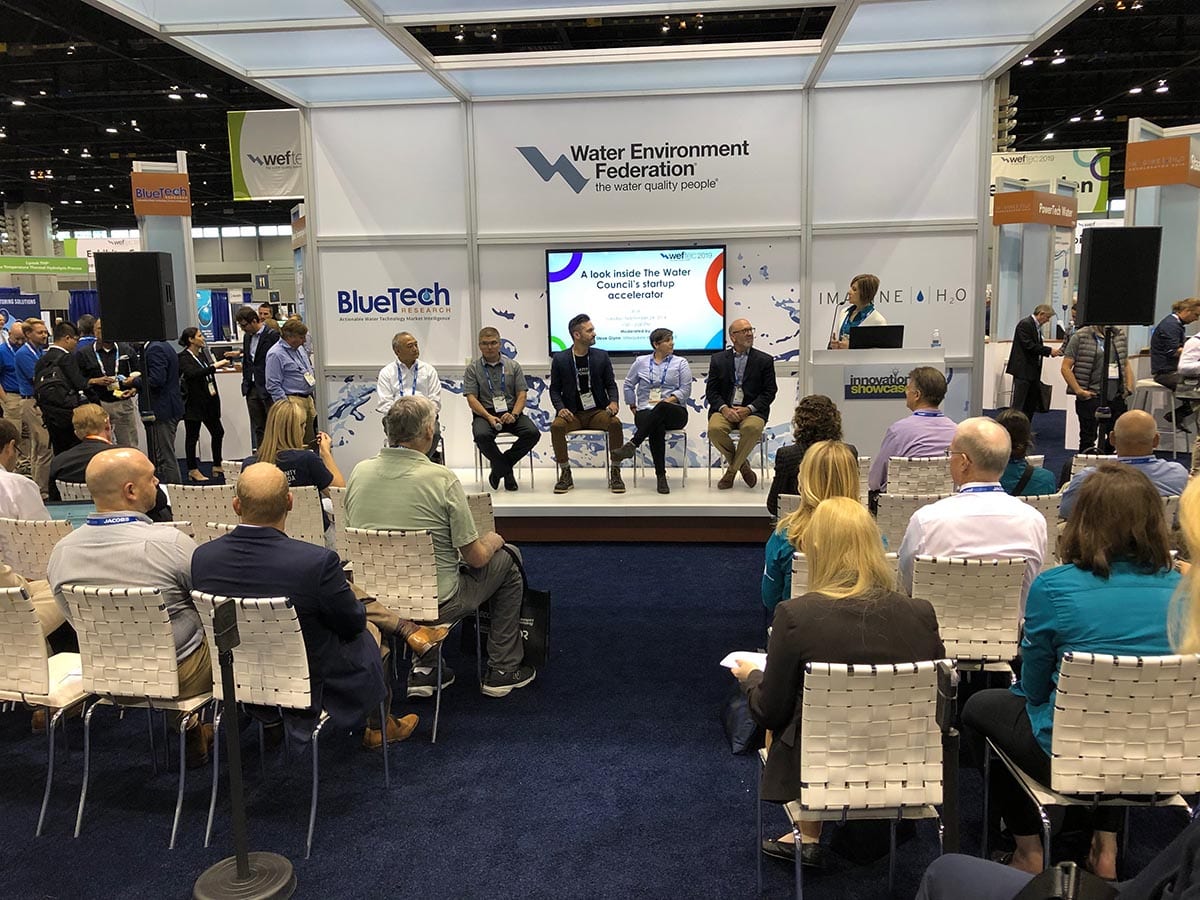
The Wisconsin company showcase panel at the 2016 BioHealth Summit. From L to R: Forward Health Group CEO Michael Barbouche, Red Arrow Labs President Dale Mittelstaedt, Propeller Health CTO Greg Tracy, APN Health CEO Jasbir Sra, and Spaulding Clinical CEO Randy Spaulding.
Wisconsin’s startup and research ecosystem “is really powerful at creating innovative ideas” in bioscience and health technology, Forward Health Group CEO Michael Barbouche told listeners in a panel discussion at the 2016 BioHealth Summit, held Tuesday, Sept. 27 in Madison.
The panel showcased a handful of Wisconsin companies that have successfully brought these types of ideas to market, including Madison-based Forward Health, whose PopulationManager® platform produces graphically elegant visual explanations of data from medical records. Intuitive and user-friendly, the software presents data in ways that enable care providers to, for example, easily identify at-risk patients, identify gaps in care, or visualize previously unseen trends within patient populations.
Also featured on the panel were:
- Waukesha-based APN Health, whose Navik 3D cardiac mapping system can create a three-dimensional image from the fluoroscopy results radiologists use to visualize the flow of blood through the coronary arteries and check for arterial blockages. The system utilizes equipment already present in electrophysiology labs, thus offering the potential for widespread use without hospitals and clinics having to invest in additional equipment. CEO and founder Jasbir Sra said the two-dimensional images that have historically been used don’t take full advantage of the detailed data that can be gathered from fluoroscopy, and also rely on radiologists’ subjective interpretation, rather than precise digital analysis.
- Spaulding Clinical, whose facility in West Bend incorporates cutting-edge technology, enables pharmaceutical companies to safely and accurately conduct studies of new drugs under development. In the course of developing a center for testing drugs for cardiac conditions, Spaulding developed a handheld, proprietary electrocardiograph (ECG) device, which it has since begun manufacturing and selling for use beyond its own facility. The device represents a vast improvement over the alternatives previously on the market: it weighs just three ounces, uses voice biometrics to identify the patient, and records up to five minutes of ECG data, compared to just 10 seconds from competitors’ products.
- Madison-based Propeller Health, which offers digital system for managing asthma and chronic obstructive pulmonary disease results in up to 79 percent fewer asthma attacks, 50 percent more medication doses taken on schedule, and 50 percent more symptom-free days by helping patients gain insight into their triggers and sharing information with the patient’s medical care team.
- Milwaukee-based Red Arrow Labs, whose health technology solutions include a platform that puts patients at the center of the care continuum, a mobile app for pharmaceutical sales reps, and enterprise software for medical devices and health care companies of all kinds, as well as consulting on compliance, experience design and data integration.
On the Leading Edge
The featured companies represented only a small sample of the innovation taking place in Wisconsin, panelists said. In a rapidly changing field, Wisconsin has companies and technologies that are on the leading edge of change and are providing much-needed solutions—yet too often, this story goes untold, the panelists said.
“In Wisconsin, everyone knows Aaron Rodgers and Ryan Braun,” said Spaulding Clinical CEO Randy Spaulding. “Do people know about our companies? …Those are the real heroes. They’re the ones in the arena fighting for a vision of a better world.”
But it may be just a matter of time until Wisconsin is as well-known as Massachusetts or Silicon Valley for its concentration of tech companies, suggested Greg Tracy, Propeller Health chief technology officer and co-founder.
Those other locations had big successes 50 years ago, creating wealth that was, in turn, funneled into young companies. “That’s what I think Wisconsin needs—more home runs,” said Tracy.
Growing the Ecosystem
Wisconsin has many factors working in its favor, including the presence of bioscience and health technology research powerhouses in the form of its universities; a highly skilled and educated workforce with lower prevailing salary rates than in Silicon Valley or Massachusetts; and a vibrant startup culture, as seen in events like Madison’s Forward Festival that celebrates technology and entrepreneurship. At the same time, panelists said Wisconsin needs to work to overcome its shortcomings, such as a shortage of local investors that can provide funding for young companies.
“These companies are making a big difference in people’s lives, and also in the Wisconsin economy,” said Exact Sciences CEO Kevin Conroy, who introduced the panel. “We have an ecosystem that can help propel the Wisconsin economy forward while making a difference in health care. We are doing great things for patients, and we are doing great things for the economy, but there’s a lot more that we can do.”






